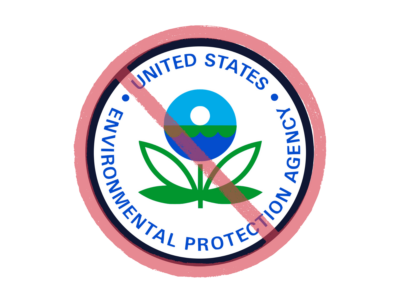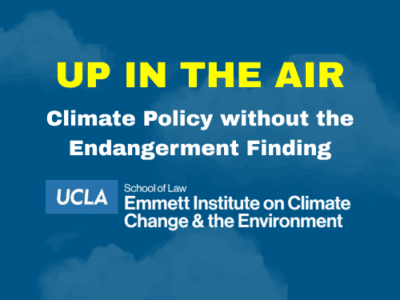New Report: Scoping the Public Health Impacts of Wildfire
A primer for stakeholders interested in the intersections of wildland fire and public health.
Wildfire smoke presents a population-wide health risk in California. Catastrophic wildfires are fueling complex and extensive public health impacts, including air pollution-related mortality and a growing toll on mental health. These risks result in hundreds of millions of dollars in estimated losses and carry stark environmental justice implications for vulnerable populations. At the same time, the policy landscape addressing this issue remains siloed on the state and federal level, posing challenges to integrated policy development and implementation.
The Center for Law, Energy, & the Environment (CLEE) and the Climate & Wildfire Institute (CWI) have released a new scoping report investigating the public health impacts of wildfire. The report synthesizes key issues in the physical and mental health impacts of wildfire, provides an overview of the state and federal policy landscape, and presents recommendations for future evaluation and policy priorities. Further research is needed into many aspects of the issue, most notably the comparative health impacts of prescribed fire, the economic costs of wildfire-induced smoke pollution, and avenues for building community resilience.
The report identifies the need for coordinated efforts working across academic and policy silos in the wildfire and public health space. Cross-sectoral collaboration is necessary between state and federal legislators, air quality regulators, land managers, local air districts, non-governmental organizations, private landowners, fire practitioners, and academics, including future work into innovative and coordinated policy implementation. Notable efforts are already emerging to strengthen interagency and intersectoral coordination: the Governor’s Wildfire and Forest Resilience Task Force and the federal Wildland Fire Leadership Council are well-positioned to facilitate greater coordination on state and federal levels. To facilitate future integrated and streamlined policy action, key recommendations to stakeholders include:
- Building capacity to address wildfire risk in the near term, through expansions in the wildland fire sector workforce, research capabilities, data collection and monitoring, community smoke protection resources, emergency response, and wildfire preparedness.
- Facilitating responsible implementation of ecologically beneficial fire, through integrated, community-led governance principles, multipronged policy development, public education and outreach, community engagement, and a considerable expansion of research into the effects of prescribed fire.
- Building systems-level resilience in wildland fire and public health, through facilitating coordinated, streamlined governance structures, developing integrated air quality regulation frameworks, working to mitigate climate change, and incorporating wildland fire safety into broader policy remits such as housing and occupational protections.
As the effects of wildfire are significant, widespread, and growing, further evaluation of impacts and avenues for building resilience will be essential.
The full report can be accessed here.







Reader Comments